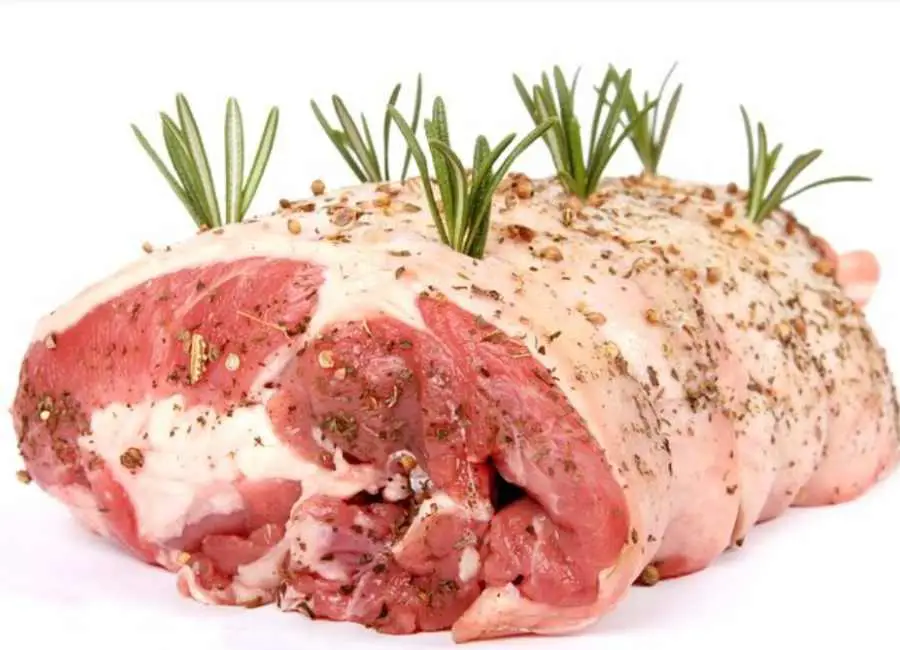How Is Meat Bad For You: 10 Risk Factors You Should Know
Looking for how is meat bad for you? Welcome to Food Creeks, in this article we will outline various ways meat is bad for you and also the benefits of eating meat.
what is meat?
Meat can be said to be animal flesh that is eaten as food, including not only the muscles and fat but also the tendons and ligaments.
Types of Meat
Here are the three main types of meat that are available and every other meat that falls into this category;
- Red meat for example (Beef, Goat, Lamb, etc).
- White meat for example (Chicken, Turkey, etc).
- Seafood for example (some Fish, Crab, Lobster, etc).
A key point to remember is that some types of meat are known to be high in fat, especially saturated fat.
And studies have shown that eating a lot of saturated fat can raise cholesterol levels in the blood, and having high cholesterol raises your risk of heart disease.
So, let’s talk about how meat is bad for you before we go to the benefits of eating meat.
How is meat bad for you?
Meat can be said to be bad when taken raw, undercooked, or processed in certain ways, such as smoking, which is a process that has been heavily linked to the production of polycyclic aromatic hydrocarbons and heterocyclic aromatic amines, which are carcinogenic compounds that have a negative effect on human health.
This is to say that a very bad way of eating meat is by smoking of any kind, especially with high temperatures.
In simple terms, smoked meat poses more potential health risks than properly cooked meat.
So, we can categorically tell you that meat itself is not actually bad but what makes it worse is the way you process it.
Smoked meat is the tastiest and sweet form of enjoying meat.
However, when meat is grilled, barbecued, or smoked at high temperatures, fat is released and drips onto the hot cooking surfaces of the meat.
85% of the time, this fat produced is saturated fats, and according to bbc.com Saturated fats in meat are associated with several illnesses, including heart disease.
Therefore, it is important to note that replacing saturated fats with polyunsaturated fats has been shown to reduce the risk of death by any cause by 19%.
If you can, we advise you to stay away from smoking meat at high temperatures no matter the type of wood you may use.
Let’s now look at some ways eating meat can hurt you or some disadvantages of eating meat.
For those who eat meat because they need high-quality iron there are other great sources of getting iron.
More on meat:
- Can Red Meat Cause Constipation: What You Should Know.
- 12 Reasons Why Can Animals Eat Raw Meat & We Can’t.
- What Meat Has The Most Iron? No1 Best Meat Source of Iron.
Reasons eating meat is bad for you.
Here are the common disadvantages of eating meat from the wrong processing angle;
- Eating too much meat increases the risk of different heart diseases.
- Eating more processed meat increases your risk of diabetes.
- Processed meat significantly increases your risk of cancer.
- Eating meat has been associated with heart attacks and strokes.
- Studies have shown that meat carries the highest risk of foodborne illness.
- Eating meat can make it hard to control and maintain healthy body weight.
- Too much intake of meat can make you resistant to antibiotics because 70 percent of the antibiotics used in the United States each year are given to animals that are used for food.
- Saturated fat found in meat during processing has been linked to cancers of the colon and breast.
- Meat is loaded with toxins that may cause health challenges.
- Too much-processed meat causes bowel cancer.
Nutrient composition of meat
According to Healthline, 100 grams of cooked chicken breasts contain about 31 grams of protein, while the same amount of lean beef contains about 27 grams.
Therefore, 100 grams of lean beef provides the following nutrient composition;
- Calories: 205
- Protein: About 27 grams
- Riboflavin: 15% of the Daily Value (DV)
- Niacin: 24% of the DV
- Vitamin B6: 19% of the DV
- Vitamin B12: 158% of the DV
- Niacin: 24% of the DV
- Phosphorus: 19% of the DV
- Zinc: 68% of the DV
- Selenium: 36% of the DV
Benefits of eating meat
Here are some benefits of eating meat which are as follows;
- Meat is abundantly rich in vitamins needed by the body.
- Meat provides a great source of L-Carnitine, and L-Carnitine does the job of transporting fats into our mitochondria for burning.
- All Meat is a great source of Glutathione, and this antioxidant has been linked to anti-aging benefits, increasing longevity, preventing illness, reducing the risk of chronic disease, and strengthening the immune system.
- Meat is generally known to be high in protein and can help to improve the muscle mass of the body.
- Meat consumption is known to help prevent iron deficiency anemia.
- All Meat is abundantly rich in minerals needed by the body.
- Meat is rich in tocopherols and vitamin E, both of which fight against collagen, and thereby can improve skin aging.
- Meat contains several amino acids that include lysine, whose increased intake results in an increase in bone mineral density.
- All Meat contains a number of n-3 fatty acids, and studies show that a deficiency in these acids can result in loss of vision.
- Meat contains methionine, an amino acid responsible for creatine, and creatine is responsible for converting the body’s fat into energy.
- Meat contains isoleucine, valine, leucine, and phenylalanine, whose deficiencies can result in the development of major depression.
- All Meat contains a high amount of vitamin B6, which is essential in maintaining a healthy immune system.
- Meat contains zinc that aids in reducing the risk of liver infection, free radical damage, as well as efficient waste management.
Processed Meat
Processed meat can be seen as any type of meat that has gone through a series of activities or is preserved by curing, salting, smoking, drying, or canning.
Is processed meat safe for you?
According to Healthline, processed meat is generally considered unhealthy for humans this is because it has been linked with diseases like cancer and heart disease in numerous studies.
Processed meat especially smoked contains many harmful chemicals that are not present in fresh meat, due to a series of chemical reactions and activities that take place during processing.
Chronic diseases associated with processed meat
Here are some chronic diseases that are associated with processed meat;
- Chronic obstructive pulmonary disease
- High blood pressure
- Bowel and stomach cancer
- Heart disease
Always remember that eating high amounts of processed meat over a long period may increase the risk of many chronic diseases, such as heart disease and cancer.
Also, bear in mind that processed meat that is fried or grilled may contain relatively high levels of nitrosamines and that nitrosamines are mainly formed when processed meat products are exposed to high heat (above 266°F or 130°C).
So, what are some examples of processed meat?
Common examples of processed meat
Here are some common examples of processed meat you should be careful with;
- Sausages
- Hot dogs
- Salamis
- Ham
- Cured bacon
- Salted and cured meat
- Corned beef
- Smoked meat
- Dried meat
- Beef jerky
- Canned meat
Interesting topics about meat:
- Does Red Meat Cause Colon Cancer: What You Should Know.
- Can Red Meat Cause Cancer: What You Should Know.
- Why Red Meat Is Bad For You: 7 Things You Should Know.
Questions And Answers About How Is Meat Bad For You
Here are some common questions and answers you may have about meat;
How bad is meat for your health?
Eating meat is not bad, but too much intake of processed meat significantly increases the high risk of different health challenges, so do not take above the daily recommended amount of meat which is 70g per day.
What does meat do to your body?
Meat is generally known to supply vitamin B12, which helps make DNA and keeps nerve and red blood cells healthy, and zinc, which keeps the immune system working properly. Generally, meat provides protein, which helps build bones and muscles.
Is it healthy to eat just meat?
Even though meat is nutritious and provides micronutrients, meat should not be the only part of your diet. This is because no single type of food is complete, meat also lacks other nutrients that your body needs for proper growth.
What is the healthiest animal to eat?
Here are the best animal meats to eat, but take them in moderation and not processed, therefore, find time to cook them and add them to your meal;
- Fish
- Chicken
- Turkey
- Pork
- Buffalo (Bison)
What happens if you eat meat every day?
However, depending on the amount of meat you eat every day, which can be too much meat intake particularly red meat and processed meats high in fat, this can cause uncomfortable side effects as well as long-term health risks.
Finally On How Is Meat Bad For You
Red meat is bad and can have many side effects, so if you can please stay away from it.
Processed meat may be better for you to enjoy, but it comes with lots of health challenges.
Smoked meat in particular is one of the best forms to enjoy meat, but it comes with lots of health challenges.
So what do I recommend?
I strongly suggest you stick to meat from fish, chicken, and turkey breast, not processed in any form.
Just get it from the market and precook it and add it to your meal during cooking.
Therefore, you stand lower risk factors when you eat properly home-cooked meat than the so-called industrial processed meat products you eat.



![Do You Flip Meat When Smoking [Answered]](https://foodcreeks.com/wp-content/uploads/2023/02/Do-You-Flip-Meat-When-Smoking-768x555.jpg)
![Can You Get Sick From Eating Old Hot Dogs [Hints]](https://foodcreeks.com/wp-content/uploads/2023/05/Can-You-Get-Sick-From-Eating-Old-Hot-Dogs-768x555.jpg)
![Why Do I Poop Multiple Times a Day [9 Reasons]](https://foodcreeks.com/wp-content/uploads/2024/03/IMG_COM_20240303_1534_26_2921-768x370.jpg)

![Can Freezer Burned Meat Be Eaten [Answered]](https://foodcreeks.com/wp-content/uploads/2023/02/Can-Freezer-Burned-Meat-Be-Eaten-768x555.jpg)